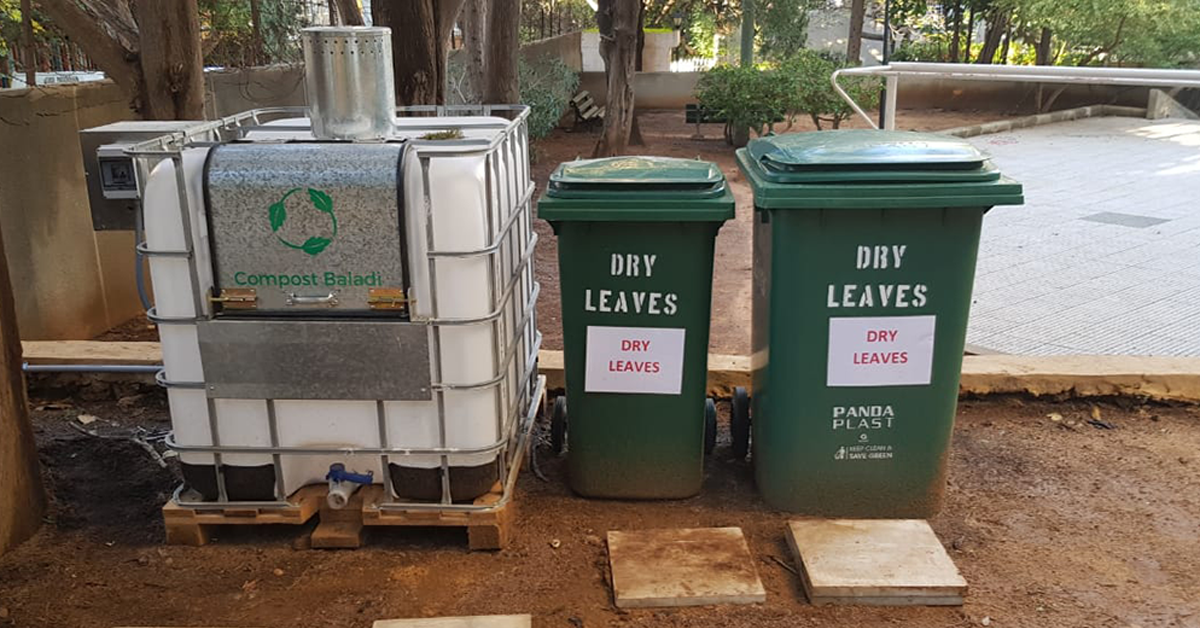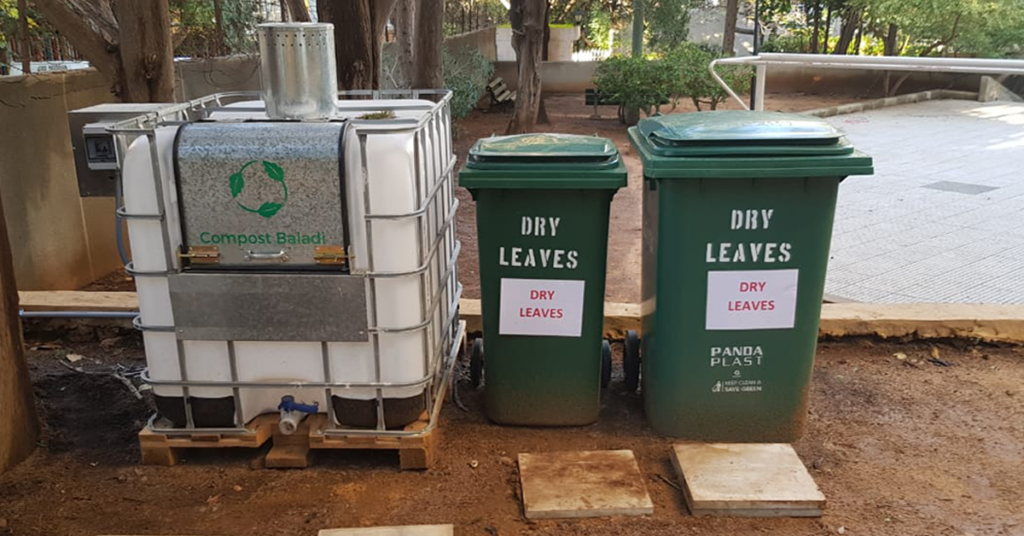
The Water and Energy for Food Grand Challenge (WE4F) Middle East and North Africa Regional Innovation Hub (MENA RIH), is an international partnership among the German Federal Ministry for Economic Cooperation and Development, the European Union, the Ministry of Foreign Affairs of the Government of the Netherlands, and Sweden through the Swedish International Development Cooperation Agency. WE4F supports the most promising and innovative companies and organizations working to produce more food with less water and more efficient energy resources. Meet Compost Baladi SAL, one of the selected Lebanese innovators and QOOT Cluster member.
CHALLENGE
In 2015, Lebanon endured the consequences of decades of waste mismanagement. Local municipalities and retailers, such as Antoura and Carrefour, have a direct need for proper waste management, as they each generate around 3,000 tons of biowaste per day. In absence of financial capacity, technical know-how and commitment from the central government, they’re bound to be exposed to and partly responsible for, the inevitable waste crises.
SOLUTION
With the support of local Lebanese investors, Compost Baladi (CB) was co-founded to respond to the critical need and demand for local bio waste solutions and services. To solve consumers’ pains of limited space in urban settings, odor risks, pest attraction, and labor intensity, CB locally developed the “Earth Cube.” A user-friendly bio waste disposal enclosed system made of reused intermediate bulk containers, and which later translated into a bigger version, the Container Composter. CB’s customers include municipalities, retailers, agro-industrialists, and farmers.
The Container Composter is a decentralized bio waste solution holding a temporary structure, which is a standardized and modular system for different municipal settings. It’s low maintenance, holds an adaptive technology, and ensures continuous monitoring by off-site professionals via remote sensing. The Container Composter allows the operator to manage bio waste in a fully enclosed, airtight, and controlled environment; preventing the generation of foul odors and leachate seepage, all while ensuring optimal composting conditions. The Container Composter can be manufactured from a 20- or 40-foot standard size shipping container and holds a small footprint. Typically, the daily feedstock input capacity is 0.75 and 1.5 tons respectively. The feedstock consists of (1) nitrogen material which is bio waste like food waste, municipal bio waste, animal manure, landscape waste, etc. and (2) a bulking agent or carbon material like dead leaves, woodchips, sawdust, etc.
CB’s product affordability and ability to substitute imported raw inputs, significantly impacts poor farmers by providing equal access to the opportunities the compost offers. Similarly, the collection service for bio waste generated doesn’t charge any fees to its generators and thus ensures equal access to all community members, including the most vulnerable. In each facility, in partnership with the local municipality, around 10% of the produced compost is given back to the community’s most vulnerable populations at a heavily discounted rate.
RECENT NEWS
Composter au Liban une tonne après l’autre (L’Orient-Le Jour)
Learn more about Compost Baladi: http://www.compostbaladi.com/
Source: Compost Baladi SAL – Water and Energy for Food Grand Challenge (we4f.org)





